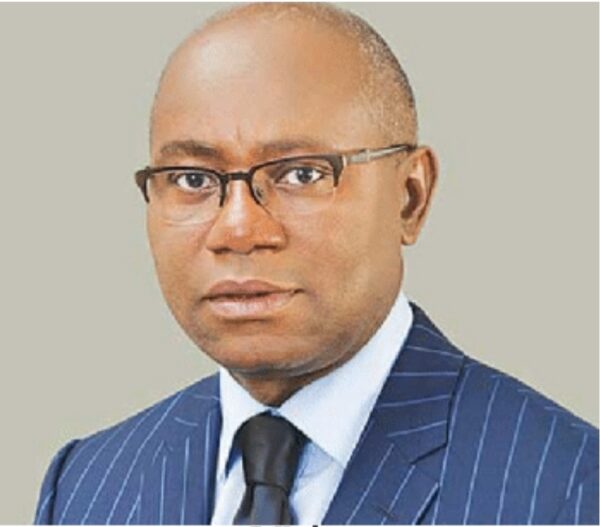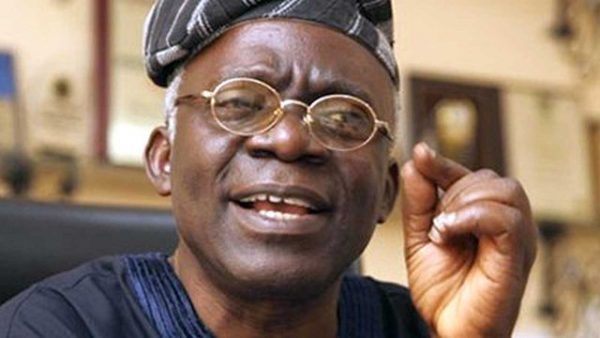Economic recovery: Now that the night seems over…
For an economy that witnessed five quarters of negative GDP growth in a row, a growth rate of 1.40 per cent (year on year) in the third quarter of 2017 after recording 0.55 per cent (later revised to 0.72 per cent) growth in the previous quarter is something to write home about. This performance is consistent with noticeable improvements in many other aspects of the economy in recent times such as the uptick in capital importation, stock market performance, Purchasing Managers Index, ease of doing business index as well as the downward trend in inflation rate all traceable to improved liquidity in the foreign exchange market and associated exchange rate stability.
Now that the night seems over, is the day drawing near? To be sure, vis-a-vis population growth rate of about 2.7 per cent per annum, the growth in national output is still weak and fragile driven chiefly by the oil-sector. As reported by the National Bureau of Statistics, real growth of the oil sector was 25.89 per cent (year-on-year) in the third quarter of 2017 contributing 10.04 per cent of total real GDP. The danger here is that another severe oil price shock will negatively impact output growth in Nigeria. It is important to note that investments in the oil sector are capital intensive and so the multiplier effect on job opportunities is hardly significant given that the sector employs less than five per cent of the labour force. This partly accounts for why high growth rates of previous years were still associated with high unemployment rates.
What is more, the non-oil sector which contributed 89.96 per cent to the nation’s GDP during the reference quarter, contracted by -0.76 per cent in real terms, with negative growth rates recorded in critical sectors of the economy such as manufacturing (-2.85 per cent), construction (-0.46 per cent), Transportation and Storage (-6.25 per cent), Education (-1.22 per cent) and Health (-0.85). Even the agricultural sector which grew by 3.06 per cent in real terms, actually recorded a decrease of -1.47 per cent points from the corresponding period of 2016. Little wonder, despite the fact that headline inflation moderated from an all-time high of 18.72 per cent in January 2017 to 15.91 per cent in October 2017, the food index has remained high at over 20 per cent.
In its recently released Capital Importation Report, the NBS stated that the total value of capital imported into Nigeria in the third quarter of 2017 was estimated to be about USD4.2 billion. In terms of contribution, Foreign Portfolio Investment was responsible for most of the inflows into the country recording an estimated USD2.8 billion with Foreign Direct Investment amounting to a paltry USD117.6 million. This capital importation mix, which is largely in favour of FPI, is not too healthy for a mono-product economy like Nigeria not least because portfolio investors are like fair weather friends who would not hesitate to exit at the slightest sign of trouble.
The stock market may be bullish due to influx of foreign portfolio investments but this makes it highly volatile and could have destabilizing impact on the foreign exchange market whenever such investments are pulled out. This risk is heightened by the fact that the market is over concentrated and dominated by a few companies with many inactive stocks. Rather than tie the fortunes of the market to the whims of foreign investors, much attention should be given to fixing the economy. The government can also incentivize the listing of companies on the Nigerian Stock Exchange through appropriate fiscal policies in order to bring about the much desired traction. It bears repeating that for an economy like Nigeria yearning for sustainable growth and development, the FDI is certainly preferred to hot money that goes by the name of the FPI.
Therefore, changing the narrative on capital importation in favour of FDI in key sectors of the economy will make way for sustainable growth. This would entail wooing countries that are known to be active in foreign direct investments such as China, Japan, Singapore and the Netherlands. Beyond seeking financing support for rail, roads and power infrastructure critical for FDI inflows, these countries should be attracted to invest in Nigeria by setting up manufacturing plants instead of shipping-in finished products. This speaks to the need to continuously improve the business environment. Interestingly, some level of progress has been made in this direction, thanks to the efforts of the Presidential Enabling Business Environment Council ably chaired by the Vice President.
According to the World Bank Ease of Doing Business index for 2018, Nigeria ranked 145 out of 190 countries surveyed. Although this year’s ranking represents a significant improvement over that of last year which placed the country in the 169th position , Nigeria still lags behind many countries such as Mauritius, Rwanda, Kenya, South Africa, Botswana and Zambia that are tops in the Sub Saharan Africa region, all competing for FDIs. Therefore, a lot more effort is required especially with regard to streamlining tax payments and ramping up the stock of power infrastructure for enhanced access to electricity.
The task of taming the inflation monster should not be left to the CBN alone. Given the key factors driving inflation in Nigeria, the need for complementary fiscal measures cannot be over emphasized. The high cost of fuel, road transport, electricity and food will go down if the government spends right in fixing the refineries, roads, rail, housing and energy infrastructure as well as committing huge funds to agriculture. The need to address the seemingly intractable problem of budget delays which partly accounts for poor implementation of annual budgets through a Budget Law (similar to the US Congressional Act of 1974) as well as amendments to the Procurement Act cannot be over stressed.
Granted that some level of stability in exchange rate has been achieved, policy should now be directed at ensuring stability at a lower price. It is a no-brainer that inflation will remain sticky downwards except exchange rate falls considerably in an import dependent economy. Here again the National Assembly can lend support to the CBN’s current efforts at conserving scarce foreign exchange by enacting a legislation that promotes the use of locally made products (similar to The United States of America Buy American Act ) to complement the President’s Executive Order issued earlier in the year.
Now that the night seems over following a return of the economy to positive growth trajectory, every attention should be focused on achieving inclusive growth that is job-oriented. This will be near impossible with critical sectors that impact directly on the welfare of citizens such as transportation, manufacturing and construction still in the negative territory. Regrettably, one of the most striking outcomes of the country’s economic growth narrative prior to the oil price slump in 2014 was the rising poverty level amidst growth records that were largely non-inclusive. In a survey of randomly selected 20 million households with an average of between four to six family members, the NBS found that Nigeria’s relative poverty measurement which stood at 54.4 per cent in 2004 increased to 69 per cent in 2010 with the North-West and North-East geopolitical zones witnessing the highest poverty rates in the country at 77.7 per cent and 76.3 per cent respectively in 2010. The survey (Nigeria Living Standard Survey Report 2010) indicated rising income inequality in Nigeria as measured by the Gini-coefficient which rose from 0.429 in 2004 to 0.447 in 2010 despite recorded growth in GDP over the same period.
In its effort to once again achieve high economic growth targets, the government should not lose sight of the fact that GDP growth is only a means to an end. Until Nigeria makes a significant leap in the Human Development Index, indicative of an improvement in the citizens’ standard of living, daylight will remain far away.
All rights reserved. This material, and other digital content on this website, may not be reproduced, published, broadcast, rewritten or redistributed in whole or in part without prior express written permission from KINGS COMMUNICATIONS LIMITED.








